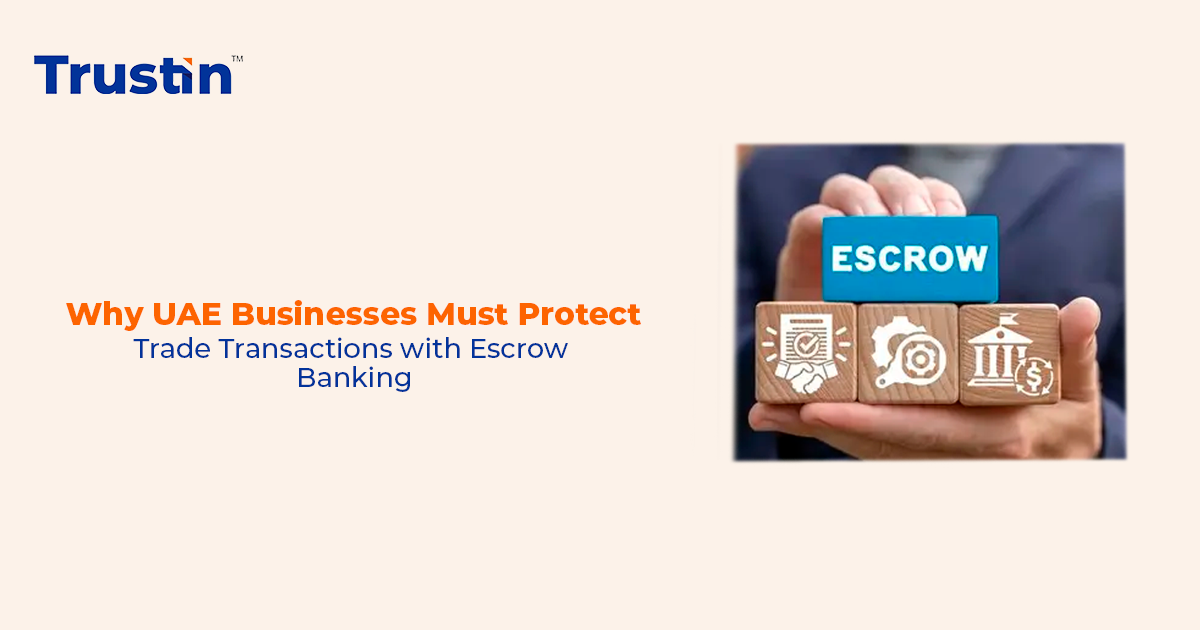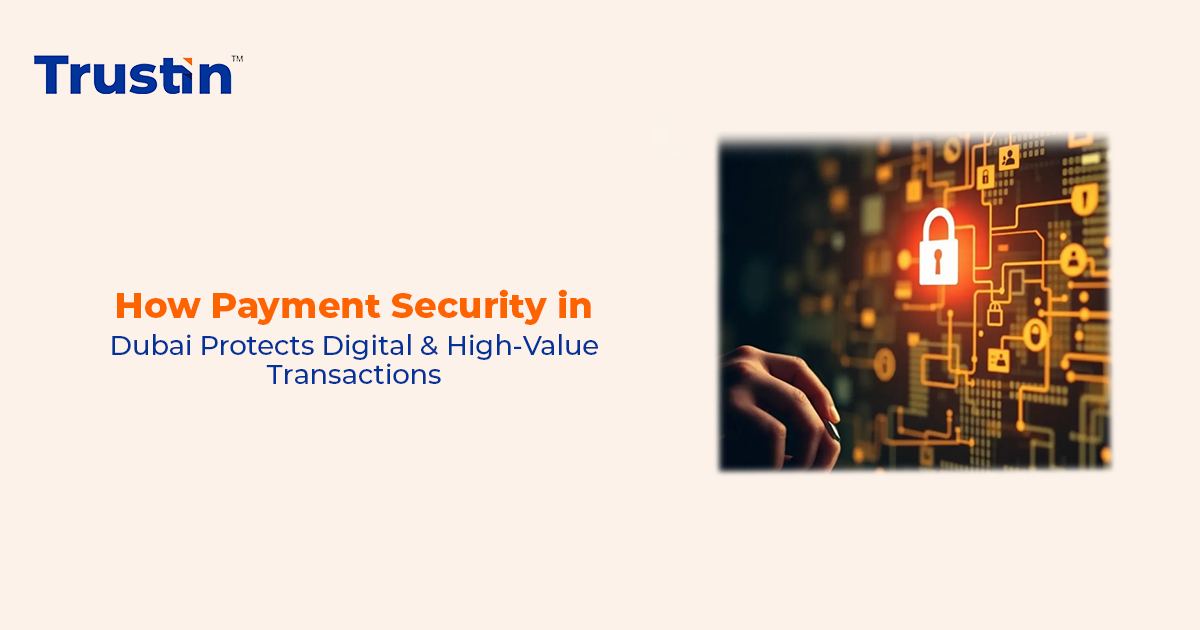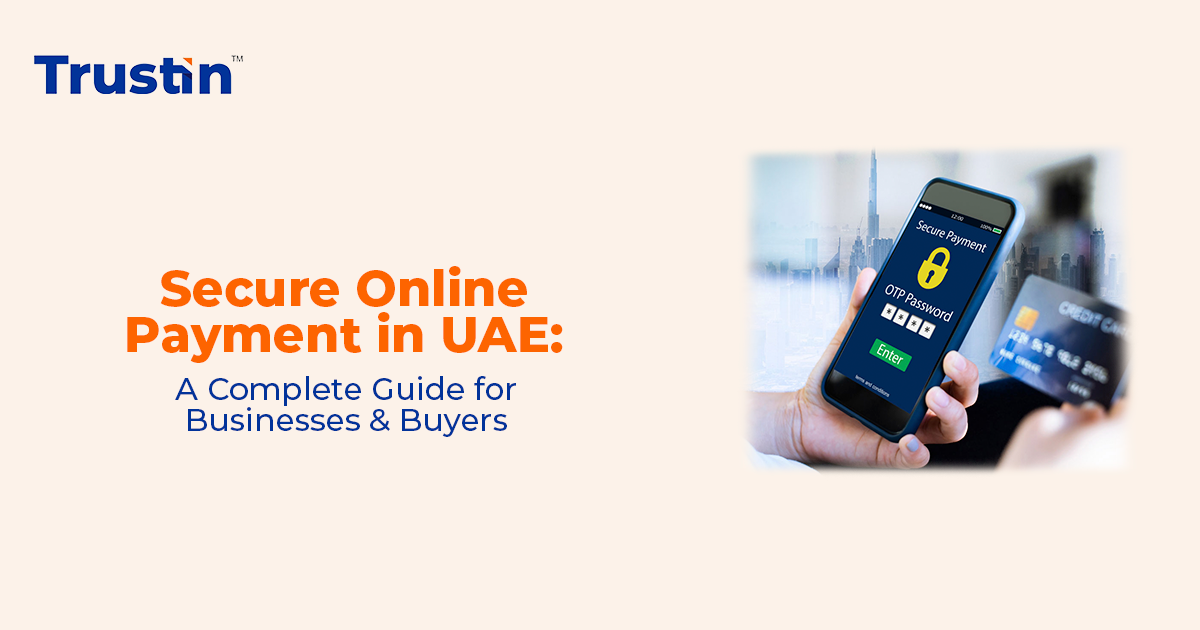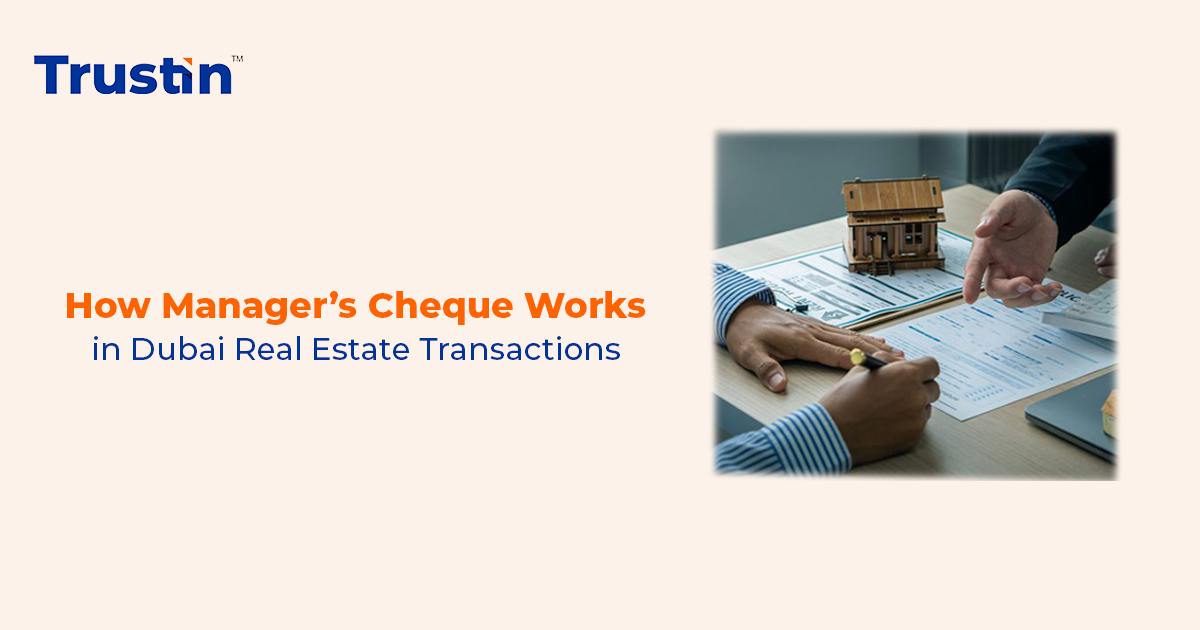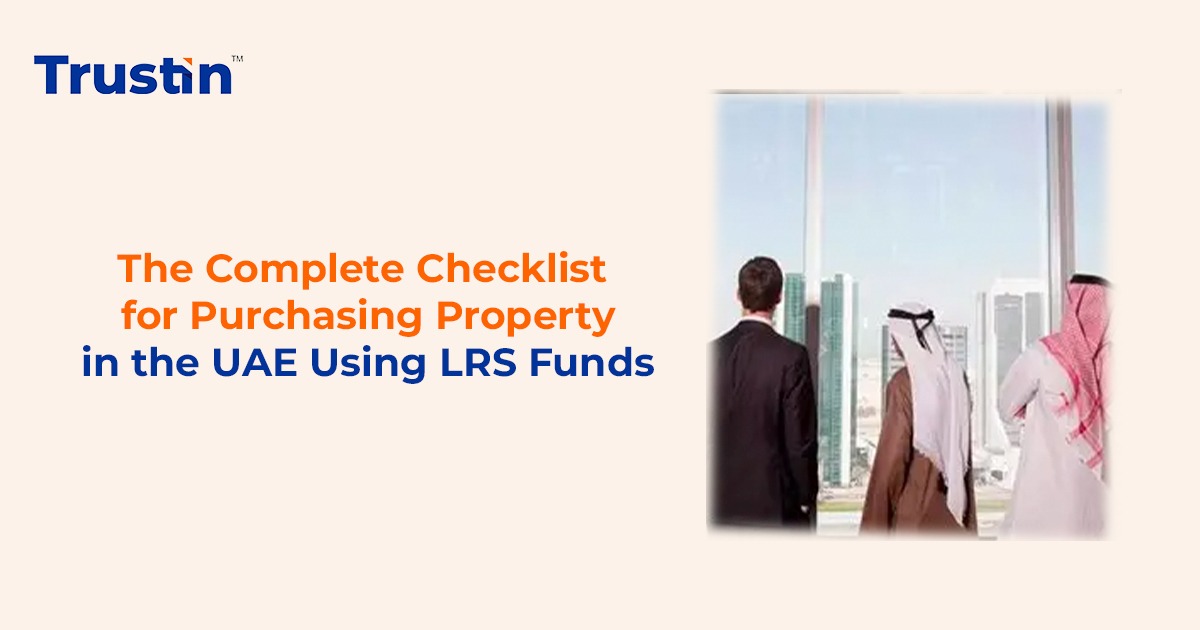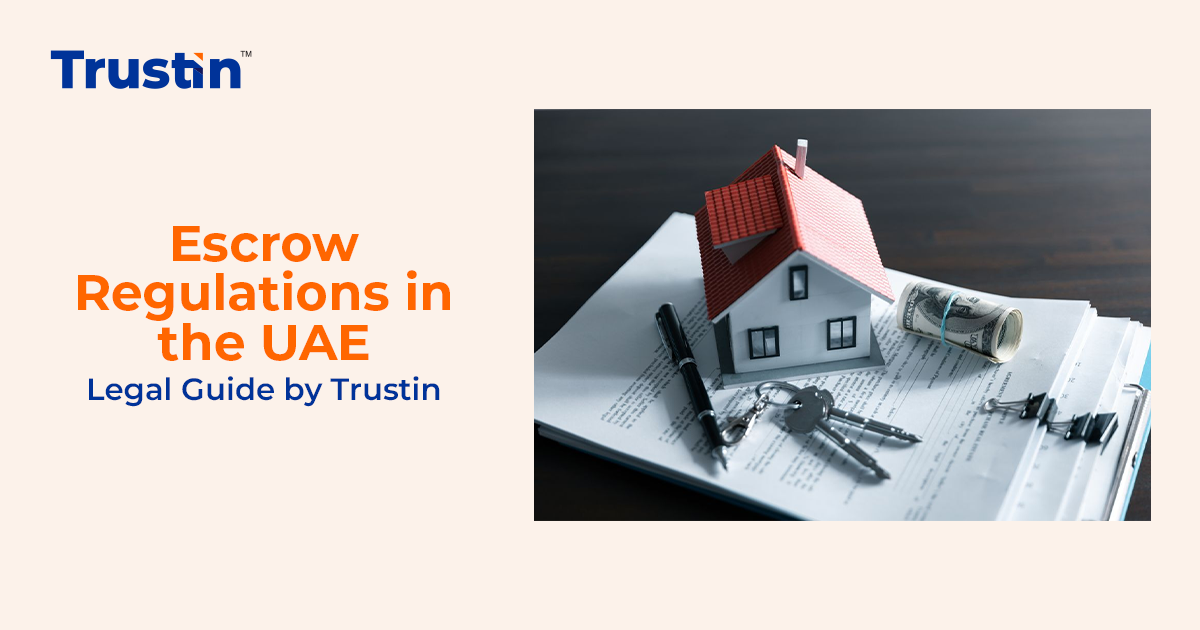
Escrow Regulations in the UAE | Legal Guide by Trustin
The demand for escrow in the UAE has been observing an upward trend. This surge is guided by escalating cross-border digital dealings, real estate transactions, and venture capital activities. As per a 2024 report given by the UAE’s Ministry of Economy, the country had recorded more than AED 12 billion in funds that were held in escrow accounts across real estate, mergers as well as acquisitions. In this numeric, digital commerce had marked a 22% rise from the year 2023. This skyward trajectory has been aligned with the UAE’s commitment to investors’ protection, financial transparency, as well as trust-forming mechanisms in almost all business transactions. In this setting, escrow services in the UAE tend to have become indispensable for mitigating any risks, ascertaining regulatory compliance, and also enabling safe transfers of assets. As we navigate the year 2025, firms, startups, companies, and individuals with ‘high-net-worth’ have been increasingly accepting digital escrow service for safe & smooth transactions across such sectors.
Understanding Escrow Services in the UAE Business Landscape
Escrow in the United Arab Emirates is a financial & legal arrangement in which there is a neutral 3rd party. This third party is called the escrow agent. He tends to hold securities, funds, or assets on behalf of the transacting parties till all the prearranged contractual obligations have been completely fulfilled. Governed by sector-centric regulations, these escrow accounts tend to be more prevalent in the real estate segment, corporate acquisitions sector, construction contracts, IP transfers, as well as cross-border trade. In the UAE, this concept of escrow has been legally very robust, especially in the real estate domain, with Dubai’s Land Department (DLD) tending to mandate the usage of such escrow accounts for off-plan property developments. Besides the real estate industry, fintech advancements have also led to the growth of such services. This has also been supported by the UAE’s Central Bank & regulatory bodies such as the FSRA, ADGM (Abu-Dhabi-Global-Market) and DFSA (Dubai Financial Services Authority). This ensures that all stakeholders tend to operate in a safe and legally compliant setting.
How Escrow Works in the UAE: Laws and What You Should Know
To guarantee successful & compliant escrow dealings in the UAE, stakeholders should be aligned with the present-day legal landscape. They should follow the industry’s best practices. Here is a rundown:
Central Bank and Regulatory Sight: The UAE’s Central Bank tends to regulate the financial institutions that offer such escrow services. This ensures that they are licensed as well as compliant with AML (i.e., anti-money laundering) and also KYC (know-your-customer) standards. The DFSA, DIFC and FSRA, ADGM also have strict frameworks for financial dealings, which tend to include such services in the fintech domain.
Real Estate Escrow Law (Dubai): Under the Law Number 8 of 2007, developers in Dubai have been legally obligated to open a project-specific escrow account with a registered bank before marketing any of the off-plan properties there. This tends to ascertain that buyers’ funds are utilised only for construction reasons and those funds are not misappropriated.
Corporate and M&A Dealings: Escrow arrangements tend to be crucial in mergers & acquisitions across the United Arab Emirates. Funds and/or assets tend to be held by an escrow agent till all valuation, due diligence, and legal needs are met agreeably. This protects both buyers as well as sellers against any post-closing conflicts.
Construction & Procurement: Escrow contracts in big-scale construction projects tend to be used for safeguarding payments to contractors, specifically in phased milestone-based developments. This tends to create financial accountability. It also aids in the timely delivery of infrastructure projects.
Intellectual Property and Tech Licensing: Escrow is more and more being used in tech licensing agreements. In these patents, source codes, or proprietary software tend to be held in escrow till licensing fees have been paid or compliance milestones have been reached.
Best Practices for Using Escrow Services in the UAE
- Engage only with regulated escrow agents with Central Bank or DIFC or ADGM registration.
- Clearly define all the release conditions in the escrow agreement.
- Always perform due diligence on all the parties that are involved.
- Try to use digital escrow platforms with total traceability as well as encryption.
- Do not forget to ensure compliance with AML policies, VAT laws, & global banking norms.
Why Choose TrustIn for Escrow Services in the UAE
At TrustIn, we tend to specialise in providing secure, transparent, and fully compliant escrow solutions. Our solutions are tailored to the ever-changing needs of businesses as well as individuals across the United Arab Emirates. Whether you are navigating an intricate property deal, a tech licensing agreement, or maybe a cross-border business transaction, we tend to give bespoke escrow in UAE solutions. Our team prioritises regulatory compliance, risk mitigation, as well as financial integrity. As a trustworthy digital escrow agent with experience across most of the sectors including fintech, real estate, & corporate, our platform has been designed in such a way that it is synonymous with speed, accuracy, & safety. By leveraging our avant-garde digital escrow services, we ascertain that your funds, docs, and/or assets are safe till all agreed-upon conditions are fully met. Our staunch commitment to integrity as well as transparency makes us a top provider of escrow services UAE.
Ready to modernize the way you transact
We’ve received your submission, and we’ll be in touch soon!



